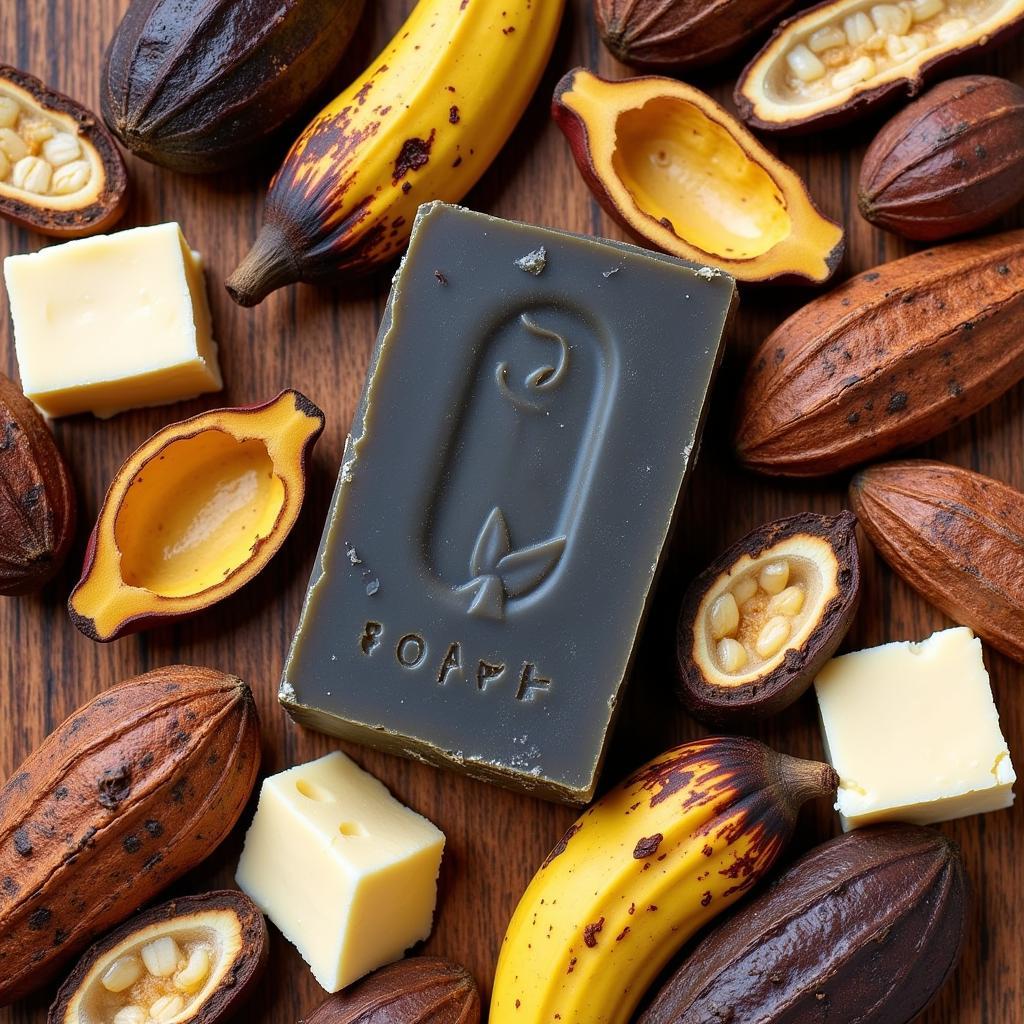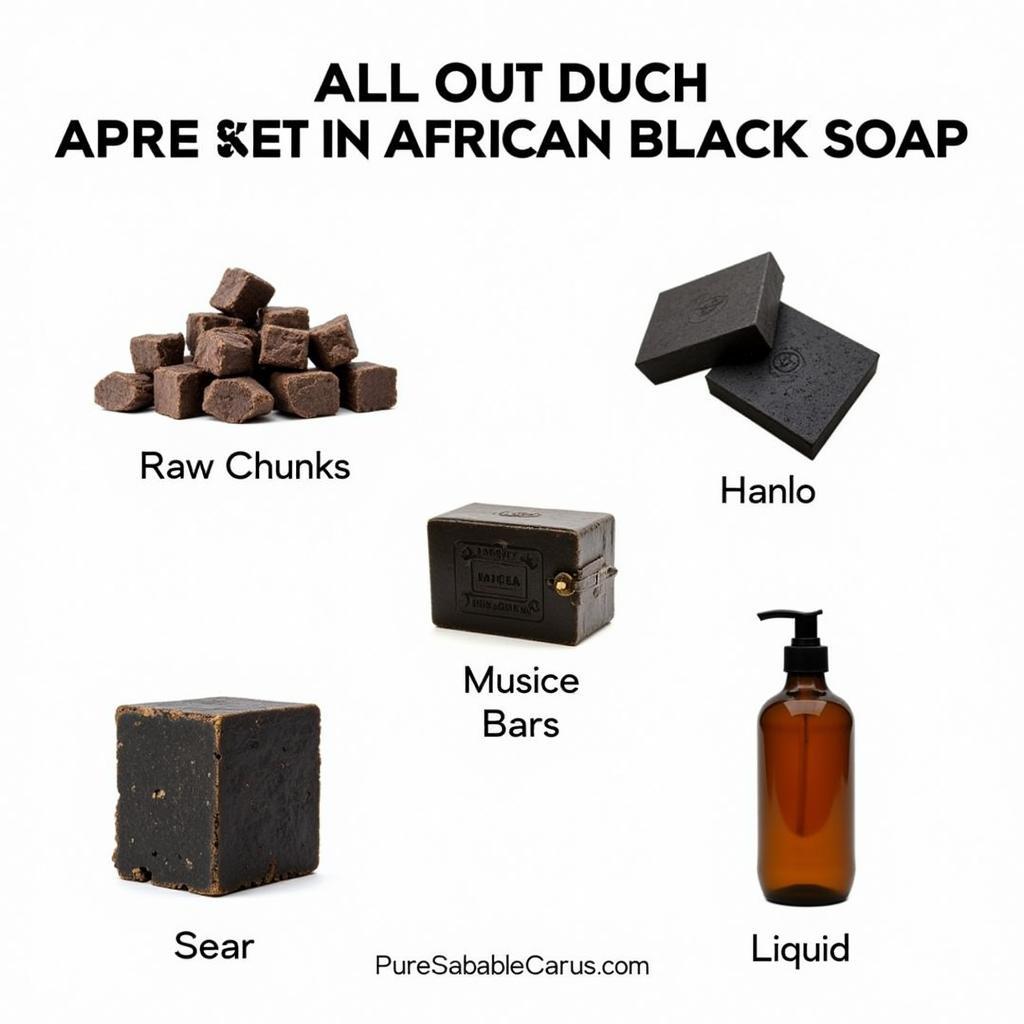African Black Soap for Cystic Acne: A Natural Solution?
African black soap has gained popularity as a natural remedy for various skin conditions, including cystic acne. This traditional soap, originating from West Africa, is known for its potential cleansing and healing properties. But does it really work for cystic acne? Let’s delve into the science and tradition behind this age-old remedy.
Understanding Cystic Acne and the Potential of African Black Soap
Cystic acne is a severe form of acne that develops deep within the skin, forming painful, inflamed nodules. Conventional treatments often involve harsh chemicals that can dry out and irritate the skin. This is where African black soap, with its gentler, natural ingredients, might offer a viable alternative. Its key components, including plantain peels, cocoa pods, palm kernel oil, and shea butter, work together to potentially soothe inflammation, reduce excess oil, and promote healing.
The Science Behind African Black Soap’s Ingredients
The traditional production process of African black soap involves sun-drying and roasting the plant ingredients, which contributes to its dark color. This process also helps concentrate the beneficial compounds within the soap. Plantain peels are rich in antioxidants and vitamins A and E, which can contribute to skin regeneration and reduce inflammation. Cocoa pods are known for their anti-inflammatory and antioxidant properties, which can help calm irritated skin. Shea butter provides deep moisturization without clogging pores, which is crucial for acne-prone skin. Palm kernel oil offers cleansing properties and can help regulate sebum production.
 Close-up of African black soap ingredients: plantain peels, cocoa pods, shea butter, and palm kernel oil.
Close-up of African black soap ingredients: plantain peels, cocoa pods, shea butter, and palm kernel oil.
How to Use African Black Soap for Cystic Acne
Using African Black Soap For Cystic Acne requires a gentle approach. Avoid harsh scrubbing, as this can further irritate the skin. Instead, lather the soap in your hands and apply the foam to your face using gentle circular motions. Rinse thoroughly with lukewarm water and pat your skin dry with a clean towel.
Tips for Incorporating African Black Soap into Your Skincare Routine
Start by using the soap once a day to assess your skin’s reaction. If your skin tolerates it well, you can gradually increase usage to twice a day. Remember that natural doesn’t always mean mild. African black soap can be drying for some individuals, so it’s essential to follow up with a moisturizer suitable for acne-prone skin. Avoid using any harsh exfoliants or acne treatments alongside African black soap to prevent over-drying and irritation.
Choosing the Right African Black Soap
Not all African black soaps are created equal. Authentic African black soap is typically rough and uneven in texture and has an earthy scent. Beware of commercially produced versions that contain artificial fragrances, colors, and preservatives, as these can exacerbate acne. Look for soap made using traditional methods and containing only natural ingredients.
Is African Black Soap Right for You?
While African black soap offers potential benefits for cystic acne, it’s important to remember that individual results may vary. Some people may experience significant improvement, while others may find it less effective. If you’re considering using African black soap, consult with a dermatologist to determine if it’s suitable for your skin type and condition.
“African black soap’s natural ingredients can be beneficial for some with cystic acne, but it’s not a one-size-fits-all solution,” says Dr. Abena Osei, a dermatologist specializing in traditional African skincare. “Patch testing and gradual introduction into your routine are crucial.”
 Various forms of African black soap: raw chunks, bars, and liquid.
Various forms of African black soap: raw chunks, bars, and liquid.
Conclusion
African black soap can be a valuable addition to a natural skincare routine for cystic acne. Its unique blend of traditional ingredients offers potential benefits for soothing inflammation, reducing excess oil, and promoting healing. However, individual results may vary, and it’s crucial to choose authentic soap and use it correctly. African black soap offers a natural approach to managing cystic acne and could be a worthwhile option to explore.
FAQ
- Can African black soap cure cystic acne? While it can help manage symptoms, it’s not a guaranteed cure.
- How often should I use African black soap for cystic acne? Start with once a day and gradually increase to twice a day if tolerated.
- Where can I buy authentic African black soap? Look for reputable sellers specializing in natural and fair-trade products.
- Is African black soap suitable for all skin types? It can be drying, so it’s best to consult a dermatologist.
- Can I use other acne treatments with African black soap? Avoid combining it with harsh exfoliants or acne treatments.
- What if African black soap irritates my skin? Discontinue use and consult a dermatologist.
- How long does it take to see results with African black soap? Results vary, but it may take several weeks of consistent use.
Dr. Kofi Asante, a traditional healer with expertise in herbal remedies, adds, “The power of African black soap lies in its simple, natural formulation passed down through generations. It’s a testament to the wisdom of traditional African medicine.” Dr. Asante also emphasizes the importance of sourcing authentic African black soap to reap its full benefits.
If you have further questions or need personalized advice, contact us at Phone Number: +255768904061, Email: [email protected] or visit our address: Mbarali DC Mawindi, Kangaga, Tanzania. We have a 24/7 customer support team.